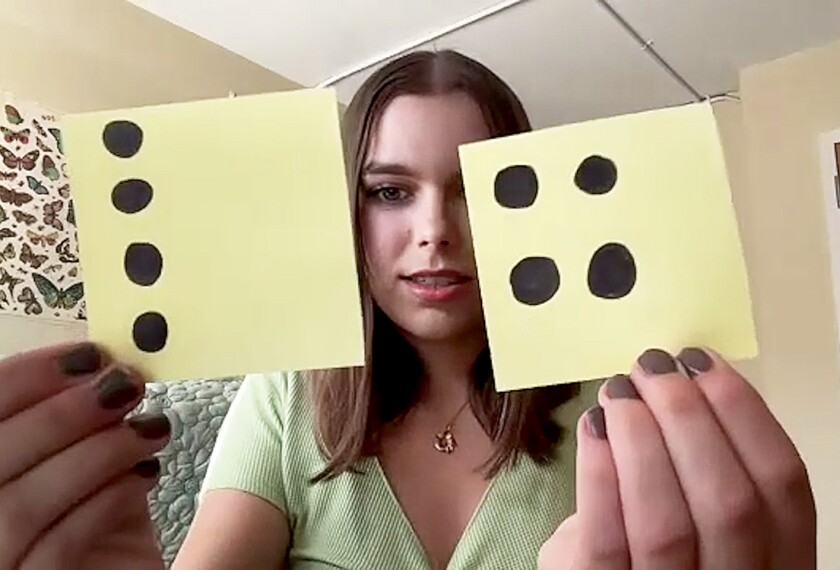Understanding Learning Differences
October 7, 2024

“Don’t give up on a student who struggles. ... [T]ry and recognize students’ strengths and weaknesses and build off of that.”
That advice for teachers comes from Cooper Snedeker, a high school junior who has dyslexia but wasn’t diagnosed with the learning disability until he was in 8th grade. Like many students who struggle with some aspect of school—whether it’s learning how to read, do math, or focus on a classroom lesson—Cooper didn’t understand why reading was harder for him than most of his peers until more than halfway through his K-12 journey.
Cooper’s advice is also a call to action. A call for educators—and really, all of us—to take the time and make the effort to better understand the uniqueness of how children learn. Without understanding what lies at the root of students’ academic challenges, educators can’t effectively respond, support, and help unlock their full potential.
With this special report, we aim to help bridge the gap in understanding by explaining some key issues that shape the experiences of students with learning differences and neurodiversity and elevating advice and solutions educators can act on to make their schools supportive and effective learning environments for all kids.
Click here for videos
That advice for teachers comes from Cooper Snedeker, a high school junior who has dyslexia but wasn’t diagnosed with the learning disability until he was in 8th grade. Like many students who struggle with some aspect of school—whether it’s learning how to read, do math, or focus on a classroom lesson—Cooper didn’t understand why reading was harder for him than most of his peers until more than halfway through his K-12 journey.
Cooper’s advice is also a call to action. A call for educators—and really, all of us—to take the time and make the effort to better understand the uniqueness of how children learn. Without understanding what lies at the root of students’ academic challenges, educators can’t effectively respond, support, and help unlock their full potential.
With this special report, we aim to help bridge the gap in understanding by explaining some key issues that shape the experiences of students with learning differences and neurodiversity and elevating advice and solutions educators can act on to make their schools supportive and effective learning environments for all kids.
Click here for videos
- Special Education Explainer Talking to 69��ý About Their Learning Differences: A Guide for TeachersTeachers who talk to kids about why learning is difficult equips students to understand themselves and become their own advocates.Special Education How Teachers Can Motivate and Engage Neurodiverse 69��ýA balanced approach of addressing students' strengths and weaknesses is best, experts say.Special Education Interactive 5 Common Learning Differences in 69��ý: A Data SnapshotSome key facts and figures about students with learning differences.Special Education 'Handcuffed and Pushed Out': How 69��ý Fail Some 69��ý With DisabilitiesWhat can happen to students and schools when disabilities are over- and under-identified in children.Special Education Q&A Is Dyslexia a ‘Superpower’? What 69��ý Want Their Teachers to Know5 students with dyslexia discuss what it feels like to be described as having special "powers."Special Education Nonverbal Learning Disorder, ExplainedNonverbal learning disability, or NVLD, took the national spotlight after the Democratic National Convention.Teaching Quiz QUIZ: Can You Spot the False Claims About Learning and the Brain?Test your knowledge of common facts and myths about learning science.Special Education Video What Educators Should Know About Dyscalculia, a Math Learning DisabilityDyscalculia impacts 5 to 8 percent of students. Here's what educators need to know about this disability and how to support students who have it.Special Education Video Dyscalculia FAQ: The Math Disability Teachers Should Know AboutDyscalculia is a math learning disability that affects 5 to 8 percent of the population. Here's what teachers should know.Special Education Video How to Spot Dyscalculia in 69��ýDyscalculia affects 5 to 8 percent of the population. Here are tips for teachers on how to spot signs that students may have the disability.Special Education Video Tips for Teaching 69��ý With DyscalculiaMethods teachers can try to help students with dyscalculia.Special Education Video The Relationship Between Dyslexia, Dyscalculia, and Math AnxietyDyscalculia is at times referred to as “math dyslexia.” Learn how the math learning disability is related to dyslexia and math anxiety.Special Education Video Diagnosed at 14, One Student's Experience With DyscalculiaJacquelyn Taylor shares her experience with dyslexia and dyscalculia on social media. Here's her advice for teachers.Special Education Video How Early Intervention and Tutoring Helped One Student With DyscalculiaTessa Marshall's dyscalculia was caught in 3rd grade. With early intervention and regular tutoring, she's now a freshman in honors geometry.
Coverage of students with learning differences and issues of race, opportunity, and equity is supported in part by a grant from the Oak Foundation, at . Education Week retains sole editorial control over the content of this coverage.












